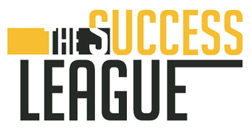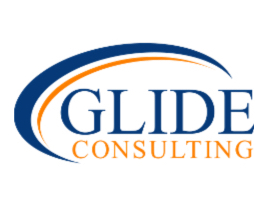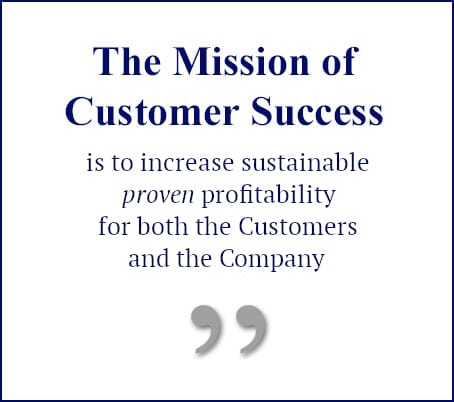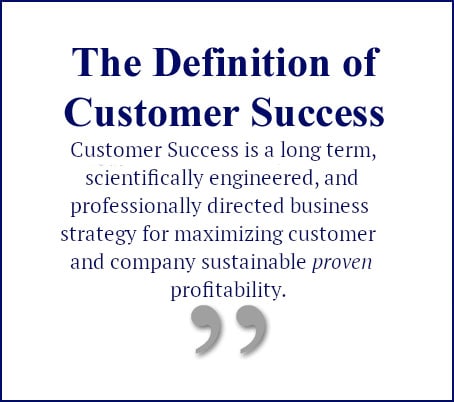Does your company offer separately billable Customer Success services? Authentic Customer Success? (As opposed to “Customer Support contracts by a fancier name?” or paid Implementation / OnBoarding?) If so, is it a profitable product? Generating strategically significant contributions to the overall corporate bottom line? If the income from the Customer Success product is not particularly significant, or such a product is not being offered at all, should it be?
The responses to the 2019 Customer Success Standards Initiative Research survey indicate that 28% of the participants’ CS groups are connected to revenue from sales of premium Customer Success services. Customer Success as a separately billable product is no new thing — many companies have offered it as an option to customers for some years. Such companies typically “bundle” customer success into the contract price for larger ARR customers, and offer it as an option for smaller value customers. But how important are those optional packages?
When I ask if the Customer Success group is measured on a P&L basis, if it is considered as a profit center or a cost center, the overwhelming answer is no – only 7% say that their prime group metric is P&L. What does this scenario mean to us as a profession?
Power Follows Money
I have been reminding Customer SuccessCon participants for many years now that there is a basic reality in organizational life. Power Follows Money. If you are not necessarily connected to or responsible for strategically significant levels of income and profitability, you will always have less power/clout than those who have such connections. This basic foundation is not secret, but there is a key word in that last sentence with particular meaning for Customer Success groups. That word is: necessarily. To have a necessary connection to revenue means that without you, the revenue stops. So the question is: Is your Customer Success group necessarily connected to revenue and profitability? How important are you in the overall corporate strategy?
A quick check on Sr. Mgmt’s perception of the value in your team is what happens when you request budget for headcount or technology. Or when you ask for a seat at the big table where important decisions are made. If the answer is always and quickly no, not only are you not being perceived as being necessary, your claim to value is itself in doubt.
All of the CS groups that I have heard about to date that were suddenly eliminated were cost centers. Would they have been obliterated if they had been generating revenues and profits? Or at least have been covering their own costs by necessary connections to revenue? I’d bet not.
Is the Logic of Customer Retention Enough?
 There is an investor group that says that for every 1% increase in revenue retention, a SaaS company’s valuation increases by 12% after 5 years. We have all heard the truism that it’s five or more times easier to sell to an existing customer than it is to a new one. The logic of customer retention being quoted on all sides is pretty clear, and seems to strongly suggest that a Customer Success group is a very good thing to have. But is that CS group actually perceived as being necessary for retention? Not always.
There is an investor group that says that for every 1% increase in revenue retention, a SaaS company’s valuation increases by 12% after 5 years. We have all heard the truism that it’s five or more times easier to sell to an existing customer than it is to a new one. The logic of customer retention being quoted on all sides is pretty clear, and seems to strongly suggest that a Customer Success group is a very good thing to have. But is that CS group actually perceived as being necessary for retention? Not always.
“We feel that the improvements we’ve made in the user interface and in increasing the intuitiveness of the product will be able to handle the lack of adoption and retention issues.” “We think that we can increase retention in other ways, we don’t really need a senior executive and expensive headcount to dedicate to this.” “I need to reallocate the budget for the Customer Success group to more vital marketing initiatives.” All of the above were quoted as reasons why some customer success groups were suddenly made redundant and all of their members let go. It isn’t always enough to be just connected to increasing adoption, or to retention as a mission.
Sharpening the Customer Success Focus
 For many years, the most common plaint from Customer Success professionals worldwide has been: “Senior Management doesn’t really understand what we do!” It’s echoed by comments from other departments: “What do those Customer Success people actually do?” Upon being told that “Our mission is to help you be successful,” more than a few customers have thought and even openly said: “What does that specifically mean?” In the face of the continuing confusion, maybe it’s time we directly addressed the question in a very practical way. The work of designing premium customer success products will compel you to quantify the value you bring to the customers and to the company.
For many years, the most common plaint from Customer Success professionals worldwide has been: “Senior Management doesn’t really understand what we do!” It’s echoed by comments from other departments: “What do those Customer Success people actually do?” Upon being told that “Our mission is to help you be successful,” more than a few customers have thought and even openly said: “What does that specifically mean?” In the face of the continuing confusion, maybe it’s time we directly addressed the question in a very practical way. The work of designing premium customer success products will compel you to quantify the value you bring to the customers and to the company.
If you specifically described the activities to be performed by a CSM for a customer, would that customer perceive enough tangible value in those efforts to be willing to pay for them? Can you make their desired outcome happen faster than they can on their own? If not, that’s a problem. Being “nice to have, but not necessary” is a vulnerable position. Being able to directly link CSM activity to increasing sustainable proven value for the customer is the first step towards becoming necessary to them.
On the Company side, the ability to directly link the work of the Customer Success team as a necessary factor in increasing overall sustainable proven value is even more vital. Start by talking to your company CFO. It isn’t safe to just submit reports showing how great your team is. You need Sr. Mgmt to acknowledge receiving that value, just as you do with your customers.
The Importance of Domain Expertise
 As a Customer Success Manager in a software company that makes marketing automation technology, for example, knowing about marketing is a good thing. Knowing a lot about marketing technology — what it is, how it works, how to best use it to create effective marketing programs is a better thing. Knowing about how to use marketing automation to increase reach and effect in a specific vertical industry is the best of all. That’s domain expertise, and it’s a core aspect of designing premium Customer Success service products. You’re going to be selling a consulting package to your customers, one that will give them the benefit of access to you as a trusted advisor. If putting a monetary value on that access to expertise is very difficult, what does that say about the depth of the domain expertise?
As a Customer Success Manager in a software company that makes marketing automation technology, for example, knowing about marketing is a good thing. Knowing a lot about marketing technology — what it is, how it works, how to best use it to create effective marketing programs is a better thing. Knowing about how to use marketing automation to increase reach and effect in a specific vertical industry is the best of all. That’s domain expertise, and it’s a core aspect of designing premium Customer Success service products. You’re going to be selling a consulting package to your customers, one that will give them the benefit of access to you as a trusted advisor. If putting a monetary value on that access to expertise is very difficult, what does that say about the depth of the domain expertise?
Do you have domain expertise in the area of your company’s customer base? Can you readily give Sr. Mgmt insight and data about their customers that they never had before, enabling them to make more effective decisions? What is that increase in effectiveness worth to the company? Can you show how losses from inappropriate sales to customers could be reduced by better prospect qualification? What’s the real value of preventing churn from that source? You’re functioning as a consultant to Sr. Mgmt; you need to know the worth of your knowledge and expertise in order to continue the relationship.
Customer Success is Never Free
 Regardless of whether customers are being separately billed for access to customer success resources or the fee is bundled/hidden in the subscription costs, Customer Success is never free. It’s time to take that fact seriously. The effort to quantify actual costs and the value of the services forces both you as the Customer Success executive and your Sr. Management team to really think about what you bring to the table. It brings clarity to the role of Customer Success both as a company-wide strategy and as a functional department. It isn’t an easy task. But it is one well worth the doing.
Regardless of whether customers are being separately billed for access to customer success resources or the fee is bundled/hidden in the subscription costs, Customer Success is never free. It’s time to take that fact seriously. The effort to quantify actual costs and the value of the services forces both you as the Customer Success executive and your Sr. Management team to really think about what you bring to the table. It brings clarity to the role of Customer Success both as a company-wide strategy and as a functional department. It isn’t an easy task. But it is one well worth the doing.
.
Recommended Reading:
The Case for Premium Customer Success
The Monetization of Customer Success
Customer Success and Value Provability
.









